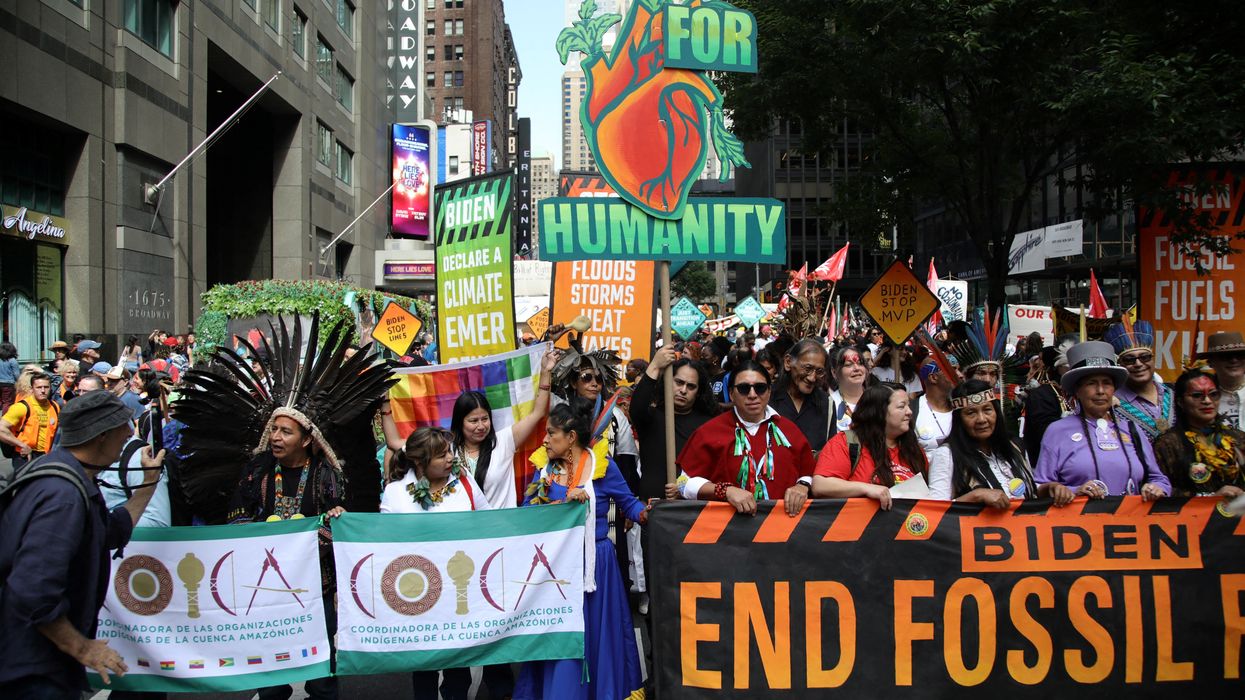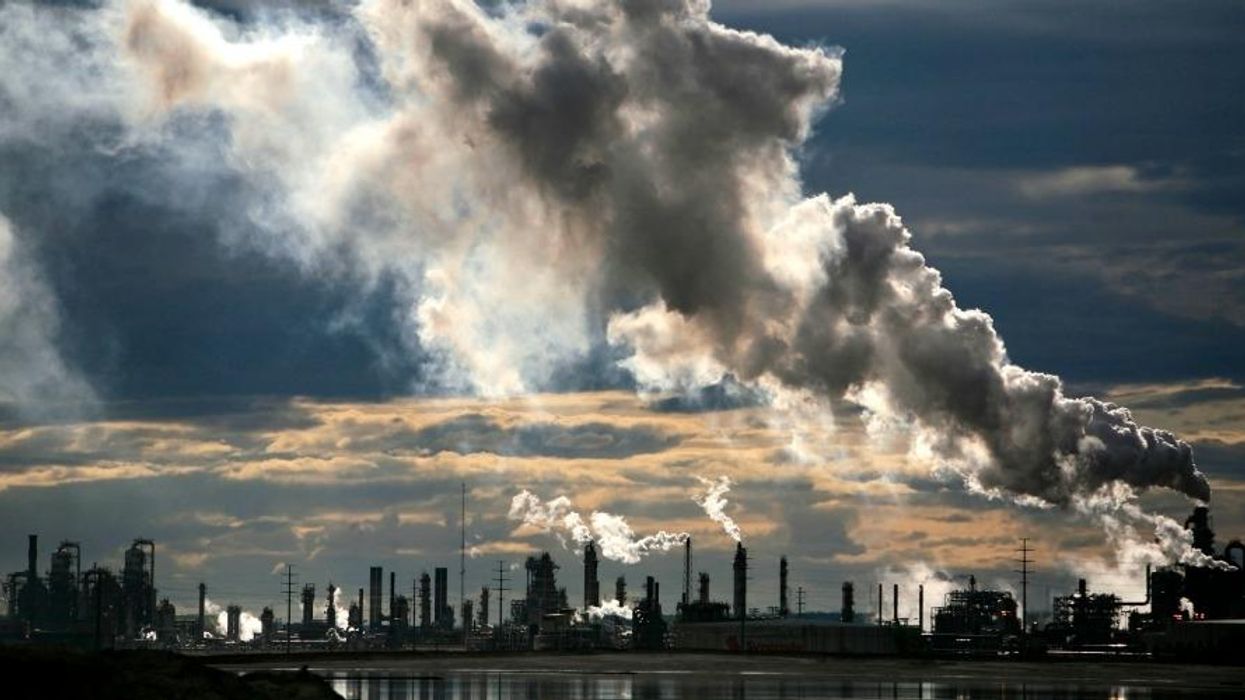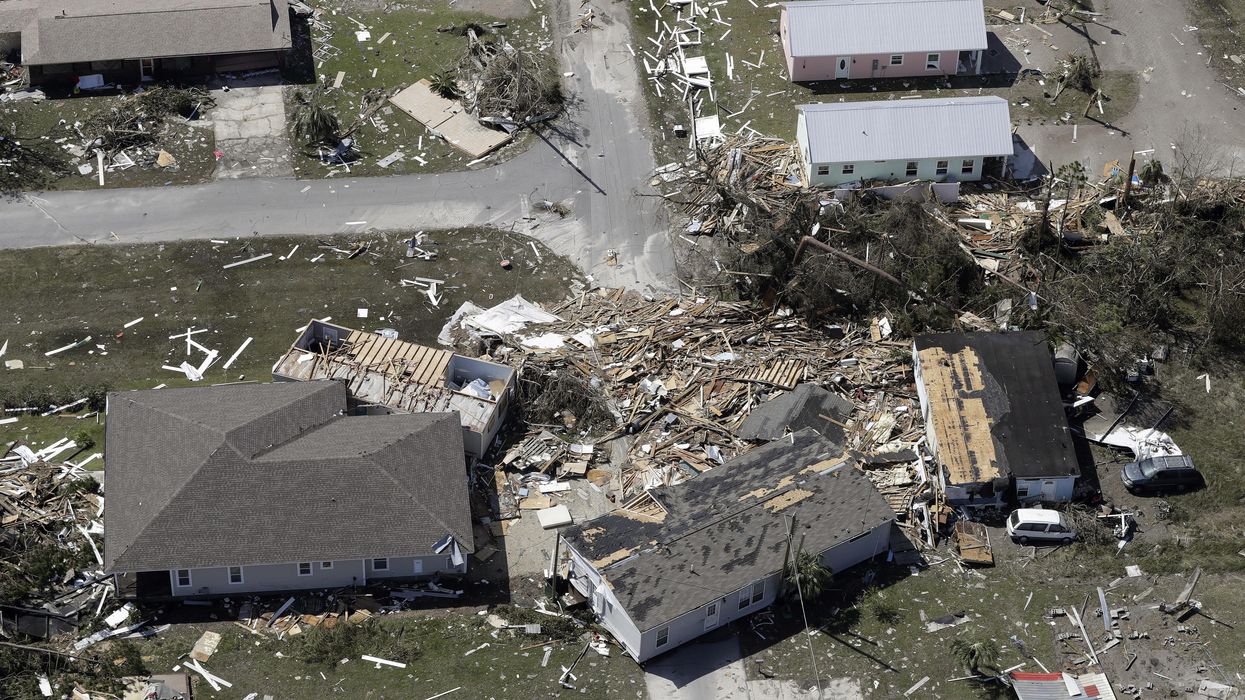Worried About the Climate Crisis? Just Start Doing Something
No matter where you are on the political spectrum, there is a group for you.
The world has temporarily reached the 1.5°C of warming that scientists had long warned must not be exceeded. And more and more people are feeling the consequences directly—most recently in Chile, where over 120 people have been killed by wildfires that were partly fueled by climate change. Global heating also contributed to the atmospheric rivers drowning California in torrential rains, creating mudslides, and causing hundreds of thousands to lose power. Scientists now say that climate change might lead them to add a Category 6 to the hurricane scale. January 2024 was the ninth-straight-warmest month on record and yet another record-breaking month after 2023 was the hottest year on record.
You would think that all this would finally make Americans want to prioritize climate protection. Instead many are lining up behind a man who does not accept the scientific consensus on climate change, who ridicules what he calls climate fanaticism, and promises to “drill, drill, drill” from his first day in office. And American banks are changing their mind and investing in fossil fuel infrastructure again. That should be considered criminal under these circumstances. No wonder the rest of the world is staring at us in disbelief.
But there is hope: In surveys conducted by Yale Climate Change Communications last year, 64% of Americans said they are worried about global warming. The problem, according to Anthony Leiserowitz, who has been leading this research, is that many also say they “don’t know what to do. They are actually quite eager to do something but have never been asked by someone they like and trust.”
I have a solution for all you worriers waiting to be asked, and it’s a simple one. Just start doing something.
We need everyone to change everything. That includes you.
Millions are already doing something, because the information about what to do is easily available. Rob Hopkins has written a whole book about The Power of Just Doing Stuff to address climate change. Joylette Portlock has a wonderful series of YouTube videos telling people “Don’t just sit there, do something” about climate change.
You don’t have to do this alone. No matter where you are on the political spectrum, there is a group for you. Start in your own neighborhood and see if yours is a Transition Town. If not, consider becoming one! If you’re able to devote time to organizing others, join a chapter of 350 or Extinction Rebellion. If you’re into lobbying, join Citizens’ Climate Lobby. Hey, and if you’re over 60 there’s even a Third Act. The Climate Disobedience Center has done a stellar job supporting those who put their bodies on the line. At a minimum, you could open your pocketbook and help fund any or all of these groups.
Some people also say the climate crisis is simply too overwhelming, and they aren’t wrong. It is perfectly normal to be seriously concerned about a planetary crisis that threatens life on Eearth. Every climate scientist and climate activist experiences bouts of deep grief over the losses we are already incurring. You’d have to be either heartless or brain dead or both if you weren’t just a bit overwhelmed by it all. But that’s no excuse not to do anything. Not until you’ve tried everything.
And climate activism is really something everyone can do. To be sure, if you saw recent coverage of Greta Thunberg in court or Jane Fonda in Denver, Colorado you might get the idea that climate activism is something just for VIPs. But it’s not. Yes, every now and then there are spectacular events—large rallies or headline-grabbing stunts—where people take great risks or commit a lot of time; some also choose to break the law to raise attention to the crisis.
But the vast majority of a climate activist’s work isn’t risking arrest or marching. It’s taking time to meet and strategize, reaching out to others to get them informed and involved. It’s reading a lot and writing op-eds like these. It’s much less glamorous and much less risky than the media coverage suggests.
And we could really use your help. Because the other side is unrelenting in its attacks on climate protection.
There’s no more room for excuses. (If you don’t trust me or don’t know where to start—there are plenty of official websites—from the U.N. to the EPA to WWF to EarthDay.org to explain the basics.)
The good news is that climate activism works. We saw that most recently when the Biden administration put a pause on LNG export facilities, meeting a major demand by climate activists across the country, and especially at the frontlines in the Gulf region.
But we need everyone to change everything. That includes you. Please join us.


